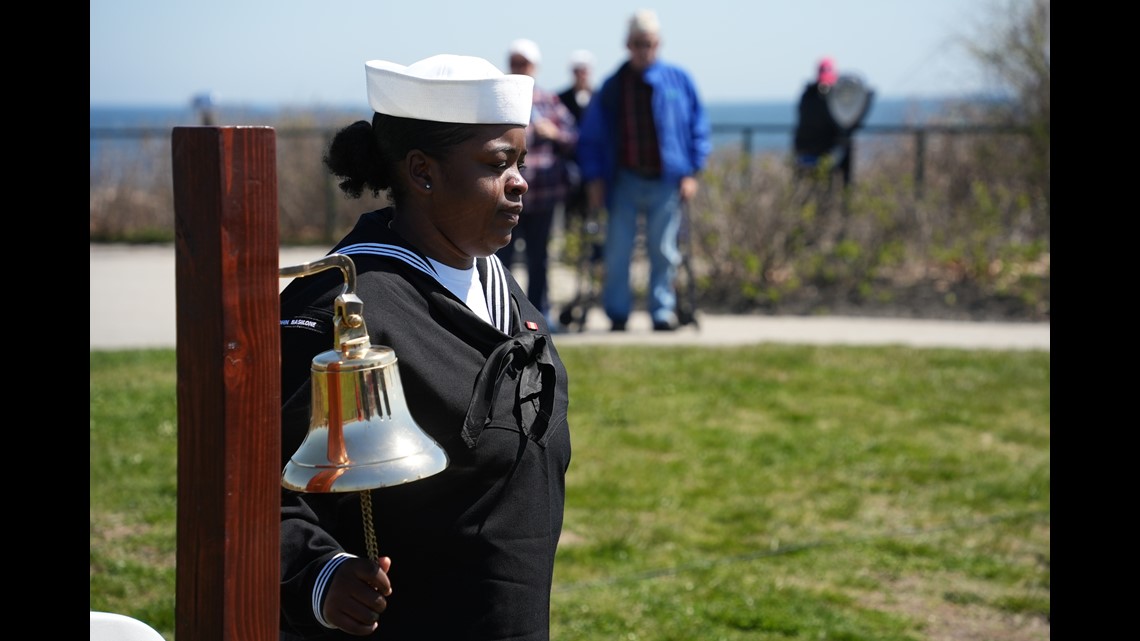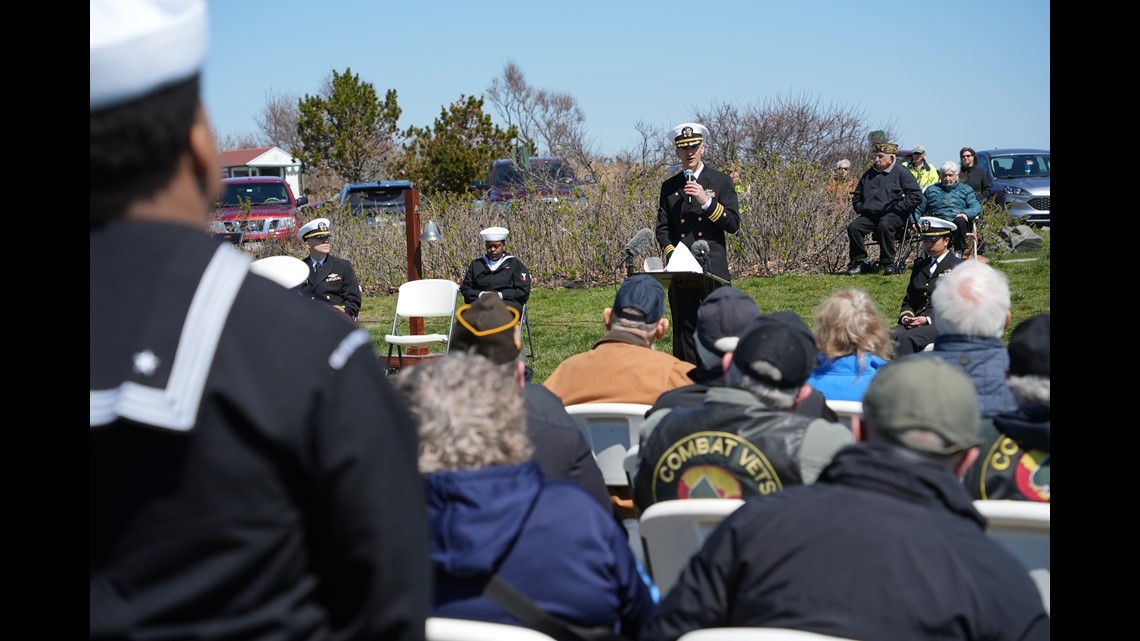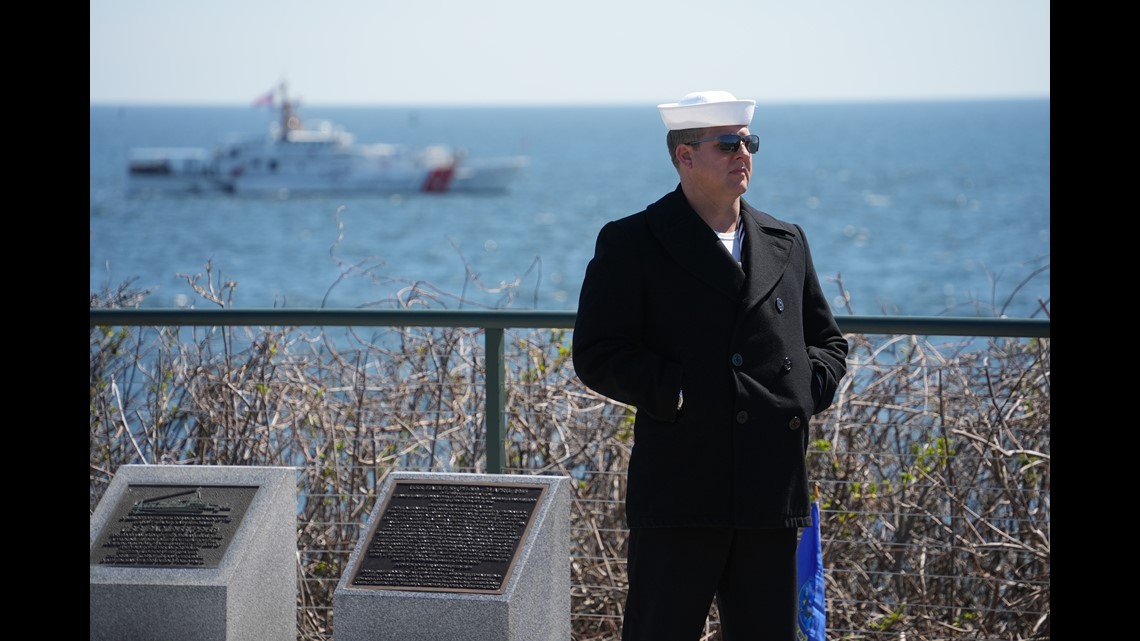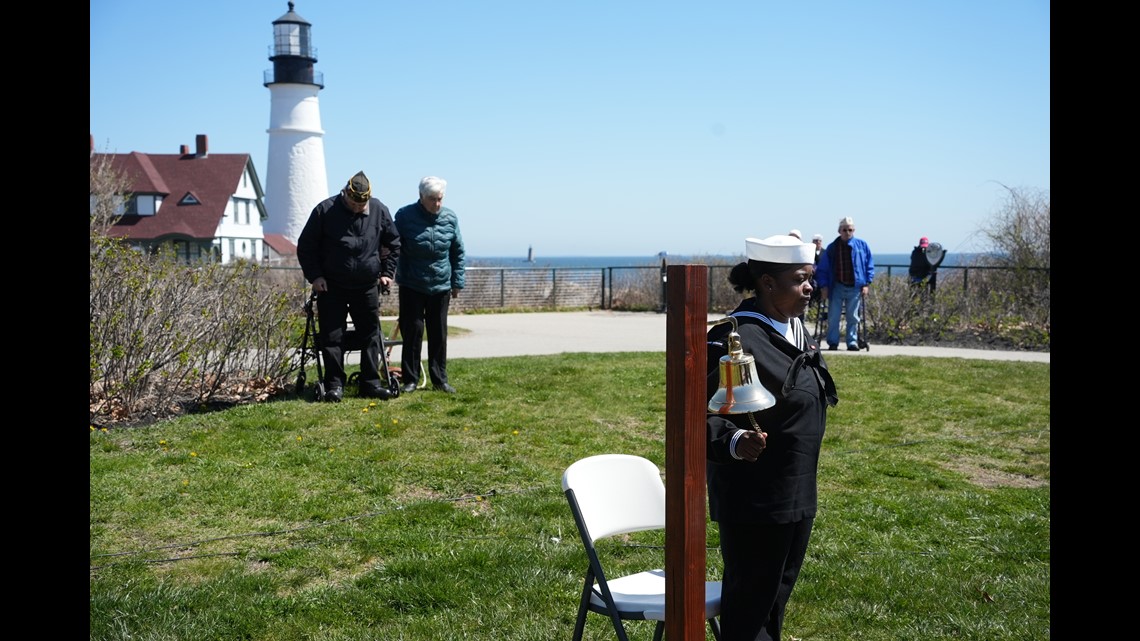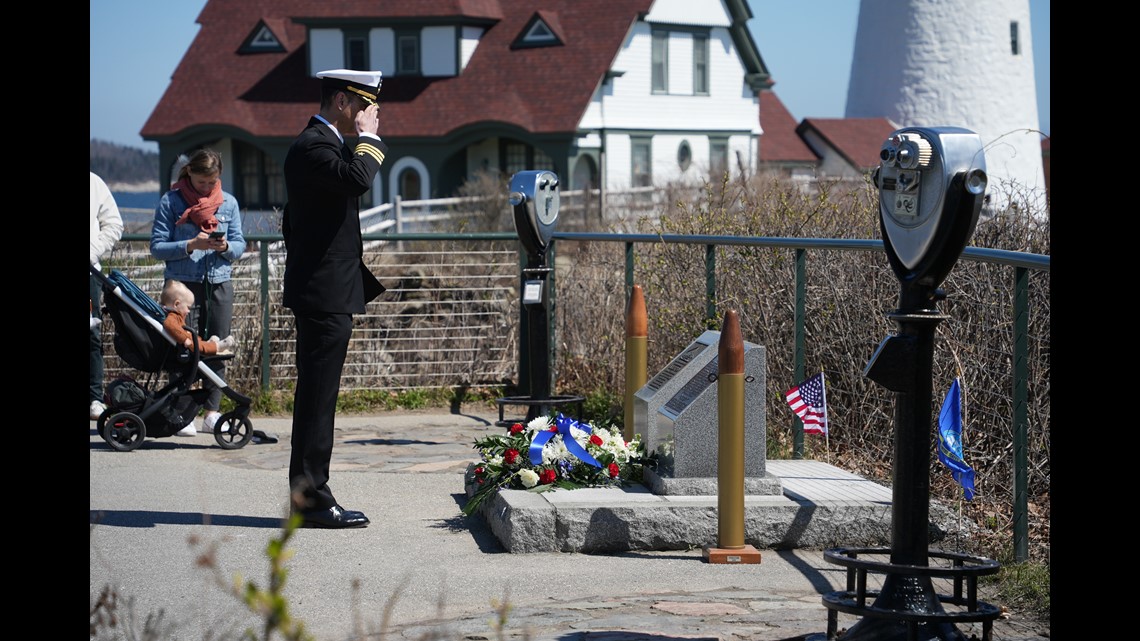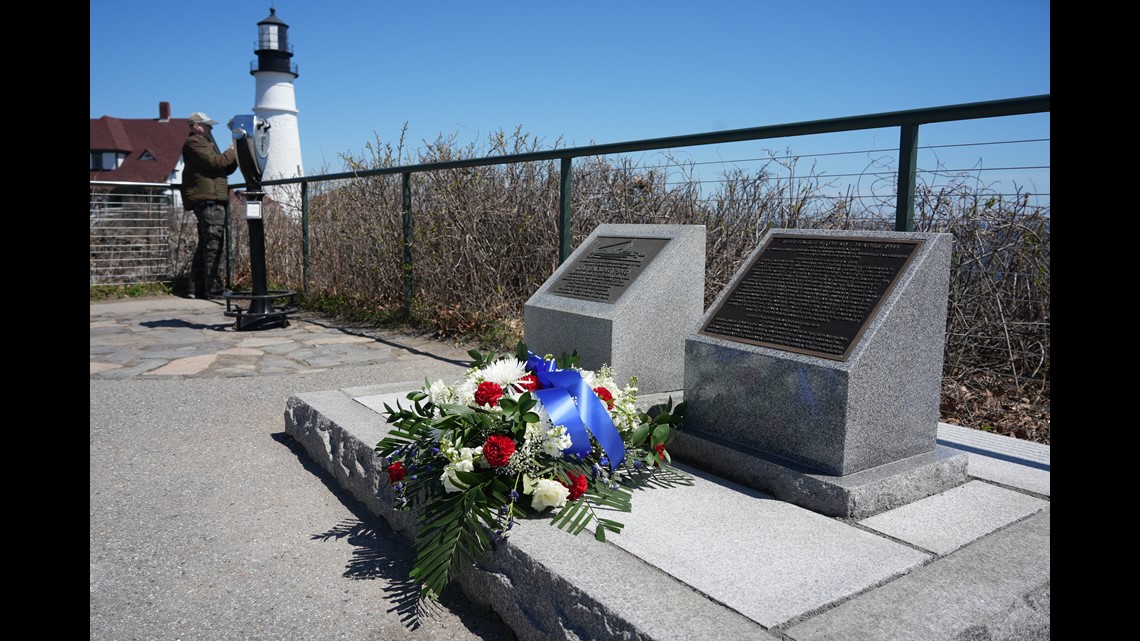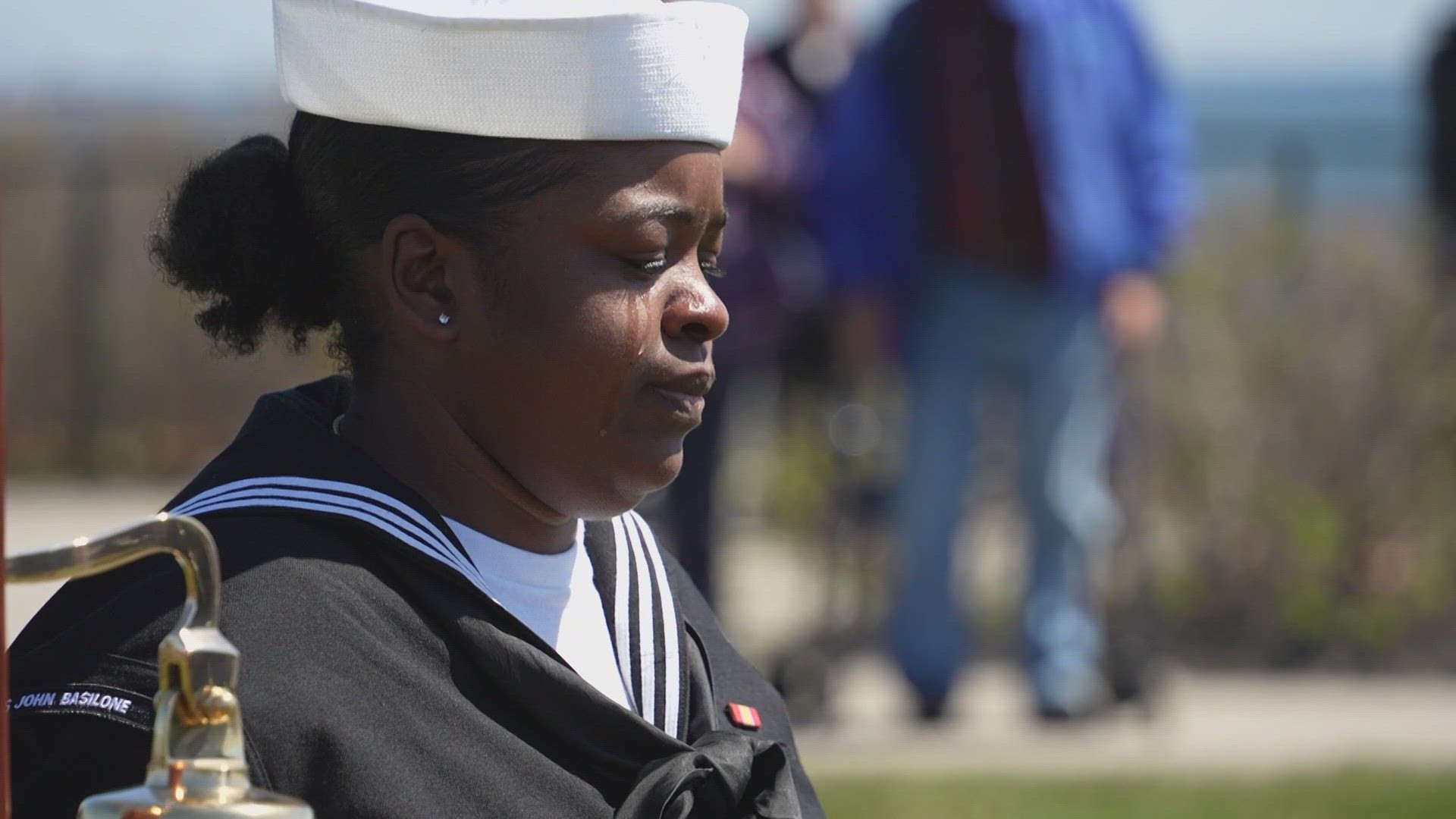CAPE ELIZABETH, Maine — In the final days of Nazi Germany, far from the European theater, a German U-boat torpedoed an American warship within eyesight of Portland Head Light.
That sacrifice in Maine waters was buried for decades and people are making up for lost time.
At 11 a.m. Tuesday, a small crowd including veterans and active-duty Navy members gathered on the sprawling lawn next to what might be America's most beloved lighthouse. By accounts of organizers, it was the largest such gathering on this solemn anniversary.
Seventy-nine years to the day, and nearly to the hour, the USS Eagle PE-56 was towing target buoys 5 miles from shore when it was hit April 23, 1945. The vessel split in two and sank. Forty-nine of the 62 crew members died.
Michael Dery helped organize Tuesday's event. A retired Naval chief petty officer, Dery recalled walking by the lighthouse's small granite memorial to the Eagle and wanting to do more.
"I'm extremely proud. You know, shipmates, it's what we do," Dery said through tears. "It's Maine history and it's Navy history, and it should be recognized and not forgotten."
That's because for decades, the wrong history was written.
After the wreck, the the Navy designated the event an accident, caused by a boiler explosion inside the ship, meaning none of the sailors were designated as killed in action.
That description remained, despite surviving crew accounts of seeing a submarine, and the sheer force of the explosion.
"They don't explode as a result of a boiler explosion," said Paul Lawton of the Eagle's model. "That stuff happened in the 1800s." Lawton is a naval historian specializing in U-boat activity in New England and investigated the wreck.
Indeed, US forces tracked and eventually sunk the suspected U-boat, U-853, just south of Port Judith, Rhode Island, on May 5, two days before Nazi Germany surrendered.
Lawton said the Eagle's encounter was far from the only U-boat activity in the Gulf of Maine and New England during both world wars. He said the U.S. military and government kept reports from reaching the public.
"They kept the news media from reporting it to avoid any type of panic," he said.
Lawton submitted his findings to the Navy and in 2001, the secretary of the Navy changed the cause of the incident to a U-boat attack and issued 51 Purple Heart awards, 49 posthumously.
Naval Commander Carne Livingston gave the keynote address Tuesday, acknowledging the Navy's delay and calling on those gathered to honor the Eagle's crew.
"It's our responsibility to ensure their service and sacrifice is remembered," he said.
Another Naval officer read each of the names of the 49 who died aloud, while another sailor chimed a bell, once after each name. Veterans gave a 21-gun salute as Livingston placed a wreath at the memorial and saluted it.
In 2018, a group of New-England-based divers called Nomad Exploration Team tracked down one last piece of the puzzle. Five miles out from shore, 300 feet down, they found the wreck of the Eagle. Its bow and stern settled far apart on the bottom. But the team discovered what they were looking for: the ship's boilers, still fully intact.
Definitive, haunting proof.
"I feel bad for the families, but it's important that it is recognized because of the closure that it'll provide those families," Dery said.
He added that after spending time with his friends and comrades back at the Portland VFW, he will begin work on next year's 80th anniversary ceremony immediately.

